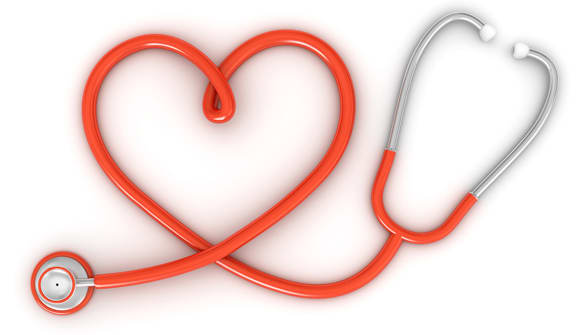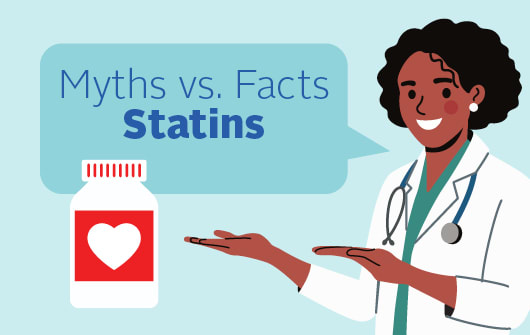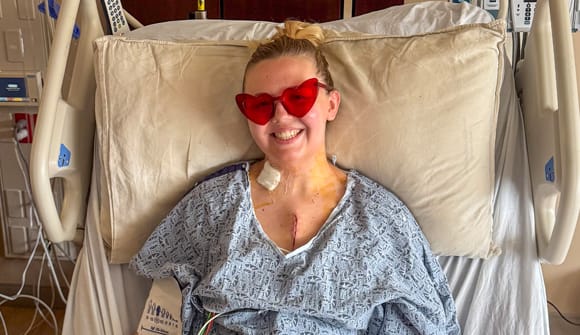Heart attack or heartburn?
Similar symptoms can cause confusion.
Article Author: Juliette Allen
Article Date:

When you feel discomfort in your chest, your mind may wander to the worst-case scenario: “Am I having a heart attack?”
According to the Centers for Disease Control and Prevention, an estimated 805,000 people in the United States have a heart attack each year. Though that number seems high, a different (and less serious) condition is much more common: heartburn.
“Not surprisingly, heartburn symptoms are often mistaken for a heart attack,” said Geetanjali Dang, MD, a cardiologist with Baptist Heart Specialists. “In fact, of the more than 8 million emergency room visits for chest pain each year, severe heartburn accounts for more than half of the cases in which actual heart problems are ruled out.”
Emergency: Symptoms of a heart attack
A heart attack is a life-threatening condition that occurs when blood flow to the heart becomes nearly or completely blocked. Symptoms may include:
- Chest pain, pressure or tightness
- Pain in the arms, jaw, neck, back or abdomen
- Lightheadedness or dizziness
- Sweating
Women are more likely to experience atypical symptoms of a heart attack, including:
- Anxiety
- Nausea or vomiting
- Pain in the upper back, shoulders or throat
- Shortness of breath
Uncomfortable: Symptoms of heartburn
The term “heartburn” is fairly self-explanatory: a burning sensation felt in the chest area that occurs when stomach acid travels up toward the esophagus (also known as acid reflux). Heartburn is a common symptom of gastroesophageal reflux disease (GERD). According to the National Institute of Health’s Medline Plus magazine, more than 60 million Americans experience heartburn at least once a month.
“It usually occurs after eating, while lying down or while bending over,” Dr. Dang said. “The burning may wake you up, especially if you’ve eaten within two hours of going to bed, but it can usually be relieved by over-the-counter antacids.”
Symptoms of heartburn include:
- Burning sensation in the chest or throat
- Sour taste in the mouth
- Difficulty swallowing
- Feeling like food is stuck in the throat
- Nausea, vomiting or burping up stomach contents
- Sore throat or hoarseness
- Coughing or wheezing
Leave it to the doctors
Dr. Dang cautioned that even physicians have a hard time distinguishing between the two conditions based on symptoms alone and often rely on testing to make a diagnosis. In general, subtle differentiators include:
- Activities prior to onset of symptoms. Heartburn tends to be worse after eating and when lying down. However, a heart attack can happen after a meal, too, Dr. Dang warned.
- Responsiveness to medication. Heartburn can be relieved by drugs that reduce acid levels in the stomach (antacids). A person who’s experiencing a heart attack should avoid over-the-counter pain relievers (except for aspirin) as they can cause more harm.
- Broadness of symptoms. Heartburn symptoms are generally specific to the gastroesophageal system (stomach and throat). Though it may cause bloating or belching (while a heart attack won’t), it doesn’t cause more general symptoms like shortness of breath.
Because the differences are so subtle, Dr. Dang urged people to take chest discomfort seriously if they’re unsure of the cause.
“We don’t want people to spend a lot of time trying to sort this out themselves,” she said. “If you’re not sure, call 911 or go directly to an emergency department. If it’s a heart attack, getting to the hospital as quickly as possible is important so physicians can work to minimize heart damage.”
If you think you or someone else is having a heart attack, call 911 immediately. If you’d like to make an appointment with a cardiologist to discuss other heart-related symptoms or concerns, call Baptist Heart Specialists at 904.720.0799 or request an appointment online. If you’re experiencing heartburn and would like to speak with a primary care doctor about ways to find relief, call 904.202.4YOU or fill out the appointment request form to find a provider near you.



